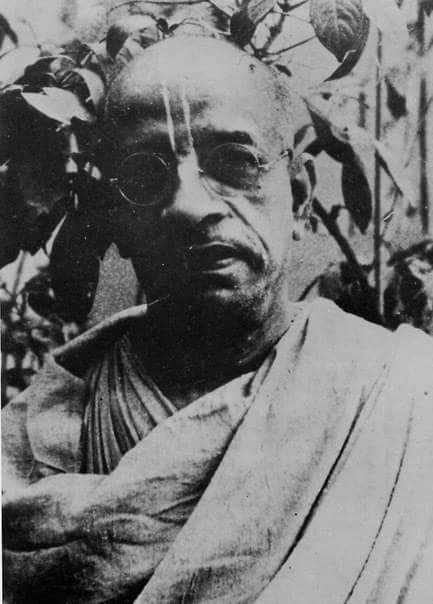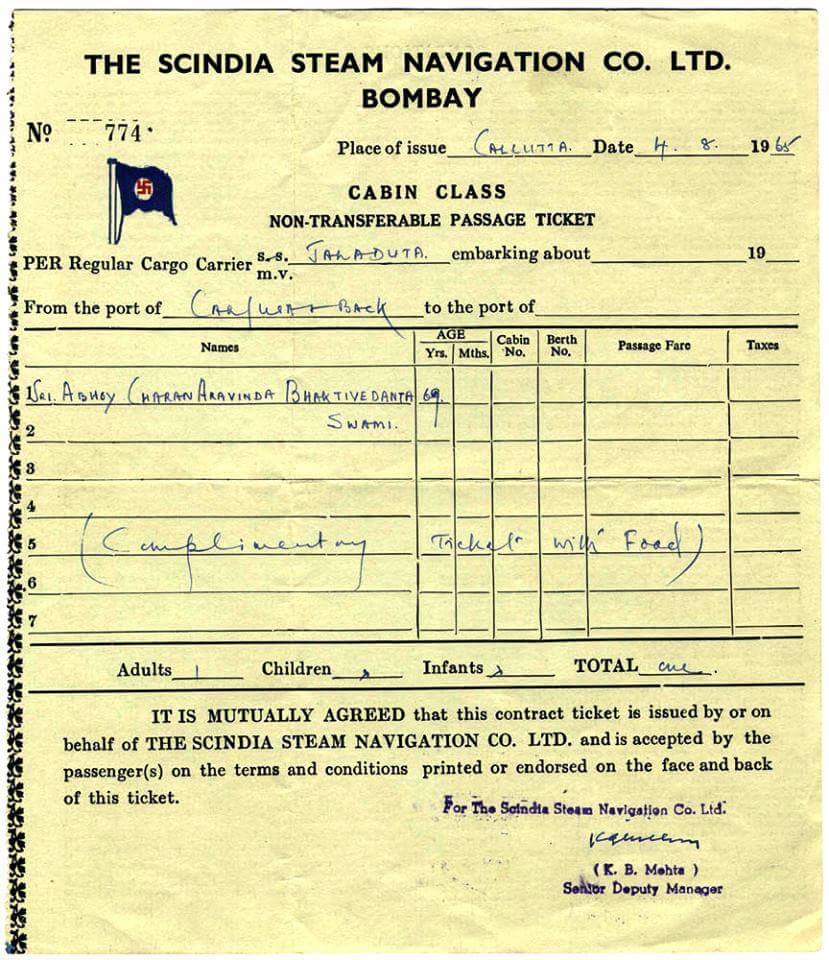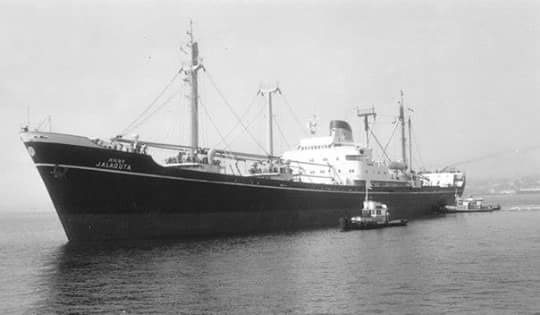Hare Krishna.
15th August, 2015. Gurgaon.
Today is the last in the three series of glorification of Srila Prabhupada’s transcendental qualities and the events leading to his departure to USA.
Lineage: Srila Prabhupada was an authorised spiritual teacher in an unbroken succession that can be traced back to God Himself – and his appearance was predicted. Sages in this line have learned and taught the pure wisdom of God’s original instructions for millennia, and include Vyasa, the author of the sacred scriptures, and Chaitanya, the propagator of the holy names of the Lord.
Simplicity: Humble, meek, truthful and pure – in his character, in his lifestyle and in the message he taught. Srila Prabhupada lived to serve mankind and inspired others to follow ‘simple living, high thinking’, a return to an uncomplicated lifestyle. Despite the success of his movement, Srila Prabhupada always remained modest and detached and gave credit to others.
Devotion: Srila Prabhupada epitomised and taught bhakti yoga: pure, absolute and unconditional love of the Supreme Lord. Giving up household life and adopting the renounced order, he became a travelling monk whose affection and compassion now extended to the whole of society. He circled the globe twelve times, spreading the message of pure devotion everywhere.
We conclude reading the 11th chapter.
Śrīla Prabhupāda-līlāmṛta Vol. 1: A Lifetime in Preparation: India 1896-1965 Vol 1, Chapter 11
Following Mrs. Morarji’s instruction, her secretary, Mr. Choksi, made final arrangements for Bhaktivedanta Swami. Since he had no warm clothes, Mr. Choksi took him to buy a wool jacket and other woolen clothes. Mr. Choksi spent about 250 rupees on new clothes, including some new dhotīs. At Bhaktivedanta Swami’s request, Mr. Choksi printed five hundred copies of a small pamphlet containing the eight verses written by Lord Caitanya and an advertisement for Śrīmad-Bhāgavatam, in the context of an advertisement for the Scindia Steamship Company.
Mr. Choksi:I asked him, “Why couldn’t you go earlier? Why do you want to go now to the States, at this age?” He replied that, “I will be able to do something good, I am sure.” His idea was that someone should be there who would be able to go near people who were lost in life and teach them and tell them what the correct thing is. I asked him so many times, “Why do you want to go to the States? Why don’t you start something in Bombay or Delhi or Vṛndāvana?” I was teasing him also: “You are interested in seeing the States. Therefore, you want to go. All Swamijis want to go to the States, and you want to enjoy there.” He said, “What I have got to see? I have finished my life.”
But sometimes he was hot-tempered. He used to get angry at me for the delays. “What is this nonsense?” he would say. Then I would understand: he is getting angry now. Sometimes he would say, “Oh, Mrs. Morarji has still not signed this paper? She says come back tomorrow, we will talk tomorrow! What is this? Why this daily going back?” He would get angry. Then I would say, “You can sit here.” But he would say, “How long do I have to sit?” He would become impatient.
Finally Mrs. Morarji scheduled a place for him on one of her ships, the Jaladuta, which was sailing from Calcutta on August 13. She had made certain that he would travel on a ship whose captain understood the needs of a vegetarian and a brāhmaṇa. Mrs. Morarji told the Jaladuta’s captain, Arun Pandia, to carry extra vegetables and fruits for the Swami. Mr. Choksi spent the last two days with Bhaktivedanta Swami in Bombay, picking up the pamphlets at the press, purchasing clothes, and driving him to the station to catch the train for Calcutta.
( Srila Prabhupada’s passport)
He arrived in Calcutta about two weeks before the Jaladuta’s departure. Although he had lived much of his life in the city, he now had nowhere to stay. It was as he had written in his “Vṛndāvana-bhajana”: “I have my wife, sons, daughters, grandsons, everything, / But I have no money, so they are a fruitless glory.” Although in this city he had been so carefully nurtured as a child, those early days were also gone forever: “Where have my loving father and mother gone to now? / And where are all my elders, who were my own folk? / Who will give me news of them, tell me who? / All that is left of this family life is a list of names.”
Out of the hundreds of people in Calcutta whom Bhaktivedanta Swami knew, he chose to call on Mr. Sisir Bhattacarya, the flamboyant kīrtana singer he had met a year before at the governor’s house in Lucknow. Mr. Bhattacarya was not a relative, not a disciple, nor even a close friend; but he was willing to help. Bhaktivedanta Swami called at his place and informed him that he would be leaving on a cargo ship in a few days; he needed a place to stay, and he would like to give some lectures. Mr. Bhattacarya immediately began to arrange a few private meetings at friends’ homes, where he would sing and Bhaktivedanta Swami would then speak.
Mr. Bhattacarya thought the sādhu’s leaving for America should make an important news story. He accompanied Bhaktivedanta Swami to all the newspapers in Calcutta-the Hindustan Standard, the Amrita Bazar Patrika, the Jugantas, the Statesman, and others. Bhaktivedanta Swami had only one photograph, a passport photo, and they made a few copies for the newspapers. Mr. Bhattacarya would try to explain what the Swami was going to do, and the news writers would listen. But none of them wrote anything. Finally they visited the Dainik Basumati, a local Bengali daily, which agreed to print a small article with Bhaktivedanta Swami’s picture.
( Srila Prabhupada’s Jaladuta ticket)
A week before his departure, on August 6, Bhaktivedanta Swami traveled to nearby Māyāpur to visit the samādhi of Śrīla Bhaktisiddhānta Sarasvatī. Then he returned to Calcutta, where Mr. Bhattacarya continued to assist him with his final business and speaking engagements.
Mr. Bhattacarya: We just took a hired taxi to this place and that place. And he would go for preaching. I never talked to him during the preaching, but once when I was coming back from the preaching, I said, “You said this thing about this. But I tell you it is not this. It is this.” I crossed him in something or argued. And he was furious. Whenever we argued and I said, “No, I think this is this,” then he was shouting. He was very furious. He said, “You are always saying, “I think, I think, I think.’ What is the importance of what you think? Everything is what you think. But it doesn’t matter. It matters what śāstra says. You must follow.” I said, “I must do what I think, what I feel-that is important.” He said, “No, you should forget this. You should forget your desire. You should change your habit. Better you depend on śāstras. You follow what śāstra wants you to do, and do it. I am not telling you what I think, but I am repeating what the śāstra says.”
As the day of his departure approached, Bhaktivedanta Swami took stock of his meager possessions. He had only a suitcase, an umbrella, and a supply of dry cereal. He did not know what he would find to eat in America; perhaps there would be only meat. If so, he was prepared to live on boiled potatoes and the cereal. His main baggage, several trunks of his books, was being handled separately by Scindia Cargo. Two hundred three-volume sets-the very thought of the books gave him confidence.
When the day came for him to leave, he needed that confidence. He was making a momentous break with his previous life, and he was dangerously old and not in strong health. And he was going to an unknown and probably unwelcoming country. To be poor and unknown in India was one thing. Even in these Kali-yuga days, when India’s leaders were rejecting Vedic culture and imitating the West, it was still India; it was still the remains of Vedic civilization. He had been able to see millionaires, governors, the prime minister, simply by showing up at their doors and waiting. A sannyāsī was respected; the Śrīmad-Bhāgavatam was respected. But in America it would be different. He would be no one, a foreigner. And there was no tradition of sādhus, no temples, no free āśramas. But when he thought of the books he was bringing-transcendental knowledge in English-he became confident. When he met someone in America he would give him a flyer: “”Śrīmad Bhagwatam,’ India’s Message of Peace and Goodwill.”
It was August 13, just a few days before Janmāṣṭamī, the appearance day anniversary of Lord Kṛṣṇa-the next day would be his own sixty-ninth birthday. During these last years, he had been in Vṛndāvana for Janmāṣṭamī. Many Vṛndāvana residents would never leave there; they were old and at peace in Vṛndāvana. Bhaktivedanta Swami was also concerned that he might die away from Vṛndāvana. That was why all the Vaiṣṇava sādhus and widows had taken vows not to leave, even for Mathurā-because to die in Vṛndāvana was the perfection of life. And the Hindu tradition was that a sannyāsī should not cross the ocean and go to the land of the mlecchas. But beyond all that was the desire of Śrīla Bhaktisiddhānta Sarasvatī, and his desire was nondifferent from that of Lord Kṛṣṇa. And Lord Caitanya Mahāprabhu had predicted that the chanting of Hare Kṛṣṇa would be known in every town and village of the world.
Bhaktivedanta Swami took a taxi down to the Calcutta port. A few friends and admirers, along with his son Vrindavan, accompanied him. He writes in his diary: “Today at 9 a.m. embarked on M.V. Jaladuta. Came with me Bhagwati, the Dwarwan of Scindia Sansir, Mr. Sen Gupta, Mr. Ali and Vrindaban.” He was carrying a Bengali copy of Caitanya-caritāmṛta, which he intended to read during the crossing. Somehow he would be able to cook on board. Or if not, he could starve- whatever Kṛṣṇa desired. He checked his essentials: passenger ticket, passport, visa, P-form, sponsor’s address. Finally it was happening.
Śrīla Prabhupāda: With what great difficulty I got out of the country! Some way or other, by Kṛṣṇa’s grace, I got out so I could spread the Kṛṣṇa consciousness movement all over the world. Otherwise, to remain in India-it was not possible. I wanted to start a movement in India, but I was not at all encouraged.
( Jaladuta, the cargo ship which Prabhupada boarded for his trip to USA)
The black cargo ship, small and weathered, was moored at dockside, a gangway leading from the dock to the ship’s deck. Indian merchant sailors curiously eyed the elderly saffron-dressed sādhu as he spoke last words to his companions and then left them and walked determinedly toward the boat.

For thousands of years, kṛṣṇa-bhakti had been known only in India, not outside, except in twisted, faithless reports by foreigners. And the only swamis to have reached America had been non-devotees, Māyāvādī impersonalists. But now Kṛṣṇa was sending Bhaktivedanta Swami as His emissary.
All glories to Srila Prabhupada.
All glories to Sri Guru and Gauranga.






